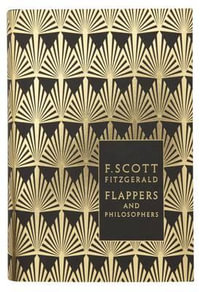
F. Scott Fitzgerald
"Show me a hero, and I'll write you a tragedy."
Fitzgerald was a bright, handsome and ambitious boy, the pride and joy of his parents and especially his mother. He attended the St. Paul Academy, and when he was 13 he saw his first piece of writing appear in print: a detective story published in the school newspaper. In 1911, when Fitzgerald was 15 years old, his parents sent him to the Newman School, a prestigious Catholic preparatory school in New Jersey. There he met Father Sigourney Fay, who noticed his incipient talent with the written word and encouraged him to pursue his literary ambitions.
After graduating from the Newman School in 1913, Fitzgerald decided to stay in New Jersey to continue his artistic development at Princeton University. At Princeton, he firmly dedicated himself to honing his craft as a writer, writing scripts for Princeton's famous Triangle Club musicals as well as frequent articles for the Princeton Tiger humor magazine and stories for the Nassau Literary Magazine. However, Fitzgerald's writing came at the expense of his coursework. He was placed on academic probation, and in 1917 he dropped out of school to join the army. Afraid that he might die in World War I with his literary dreams unfulfilled, in the weeks before reporting to duty Fitzgerald hastily wrote a novel called The Romantic Egotist. Although the publisher Charles Scribner's Sons rejected the novel, the reviewer noted its originality and encouraged Fitzgerald to submit more work in the future.
Fitzgerald was commissioned a second lieutenant in the infantry and assigned to Camp Sheridan outside of Montgomery, Alabama. It was there that he met and fell in love with a beautiful 18-year-old girl named Zelda Sayre, the daughter of an Alabama Supreme Court judge. The war ended in 1919, before Fitzgerald was ever deployed, and upon his discharge he moved to New York City hoping to launch a career in advertising lucrative enough to convince Zelda to marry him. He quit his job after only a few months, however, and returned to St. Paul to rewrite his novel.
After graduating from the Newman School in 1913, Fitzgerald decided to stay in New Jersey to continue his artistic development at Princeton University. At Princeton, he firmly dedicated himself to honing his craft as a writer, writing scripts for Princeton's famous Triangle Club musicals as well as frequent articles for the Princeton Tiger humor magazine and stories for the Nassau Literary Magazine. However, Fitzgerald's writing came at the expense of his coursework. He was placed on academic probation, and in 1917 he dropped out of school to join the army. Afraid that he might die in World War I with his literary dreams unfulfilled, in the weeks before reporting to duty Fitzgerald hastily wrote a novel called The Romantic Egotist. Although the publisher Charles Scribner's Sons rejected the novel, the reviewer noted its originality and encouraged Fitzgerald to submit more work in the future.
Fitzgerald was commissioned a second lieutenant in the infantry and assigned to Camp Sheridan outside of Montgomery, Alabama. It was there that he met and fell in love with a beautiful 18-year-old girl named Zelda Sayre, the daughter of an Alabama Supreme Court judge. The war ended in 1919, before Fitzgerald was ever deployed, and upon his discharge he moved to New York City hoping to launch a career in advertising lucrative enough to convince Zelda to marry him. He quit his job after only a few months, however, and returned to St. Paul to rewrite his novel.







































